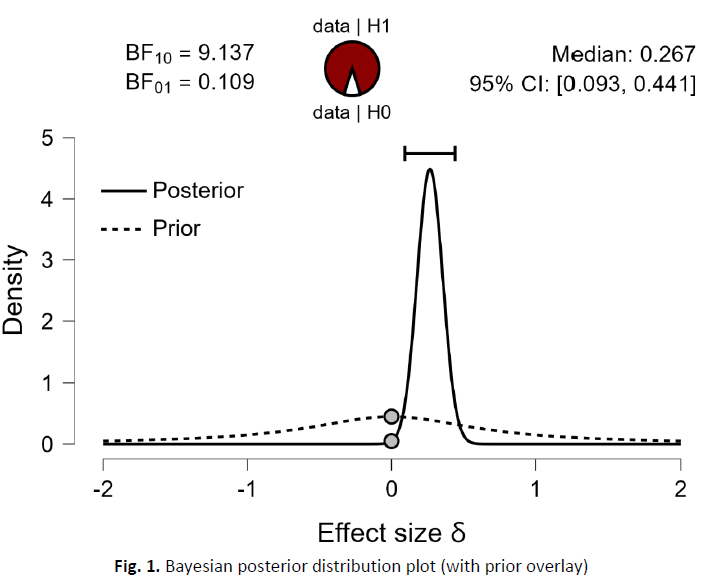Gender Differences in Mental Well-being among Chinese College Students: A Bayesian Analysis
DOI:
https://doi.org/10.37934/jhqol.7.1.4955Keywords:
Gender differences, mental well-being, mental health, college students, Bayesian analysisAbstract
This study addressed the growing concern of mental health issues among Chinese college students, a group increasingly vulnerable due to academic pressures and social transitions. Prior research suggests that gender plays a significant role in mental well-being, yet there is limited understanding of these differences within the Chinese higher education context. Focusing on gender as a key factor, this research aimed to fill this gap and inform targeted mental health support strategies. Using a cross-sectional convenience sample of 519 students (mean age = 21.18 years, SD = 2.00; 309 females) recruited via an online platform, mental well-being was assessed with the Short Warwick-Edinburgh Mental Well-Being Scale (overall mean score = 23.30, SD = 3.82). Independent samples t-tests and Bayesian analyses revealed that male students reported significantly higher levels of mental well-being than female students. These gender differences may be influenced by factors such as differential social expectations, coping mechanisms, and greater stigma surrounding mental health issues among females. The findings underscore the need for gender-sensitive mental health interventions in Chinese higher education to promote well-being across all student groups effectively.














